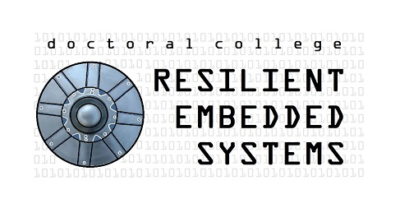Supervisor: Karl M. Göschka
Danger Theory in Sensor Networks:
Immune-inspired Fault Detection in Wireless Sensor Networks
WSN play an important role as data sources in IoT because services to provide suggestions and predictions ultimately depend on the quality of the provided data. Such networks consist of dedicated sensor nodes interlinked for the purpose of measuring physical conditions and forwarding this data to one or more central points (e.g., server/cloud systems) for further processing. These sensor nodes are typically low-cost embedded systems with strictly limited resources and capabilities, especially regarding their energy budget.
To ensure data correctness, runtime measures to detect erroneous behavior/data such as detecting anomalies techniques are gaining significance. In addition to data and network anomalies, the detection of deviations caused by sensor node faults has become a crucial task. As the detection of faults in the sensor network can be seen similar to the diagnosis of illnesses, especially immune-inspired approaches have shown promising preliminary results.
Nevertheless, detecting faulty sensor nodes is a non-trivial task due to the restrictions of the sensor nodes’ in combination with the emerging behavior of the sensor network. As fault-induced anomalies can only be discriminated from data anomalies present in the observed physical phenomena with the aid of node-level information, the fault detection has to be performed for the most part on the sensor nodes directly. This, in turn, requires efficient and lightweight approaches to not violate the sensor networks’ requirements or restrictions.
For this reason, this dissertation proposal focuses on the adaptation and adoption of immune-inspired techniques for distributed and decentralized fault detection in WSN, in particular, the dDCA. This algorithm bases on an immunological theory centered around the detection of danger to the host, the so-called “Danger Theory”. The contributions of this work are developing a WSN-applicable version of the dDCA suitable for decentralized fault detection. In contrast to previous work, the envisioned work will (i) investigate node-level input signals to the algorithm, (ii) analyze the suitability of an ensemble learning algorithm to enhance the dDCA’s efficiency, and (iii) develop a decentralized fault-detection system based on the previous findings.
The system will be evaluated using (i) simulations with tools that have been proven to be suitable for investigating aspects of WSN and (ii) by an evaluation in a real-world WSN testbed. Thereby, the approach is compared against related state-of-the-art concepts based on well-established metrics (e.g., detection rate, accuracy, or F1 score).
